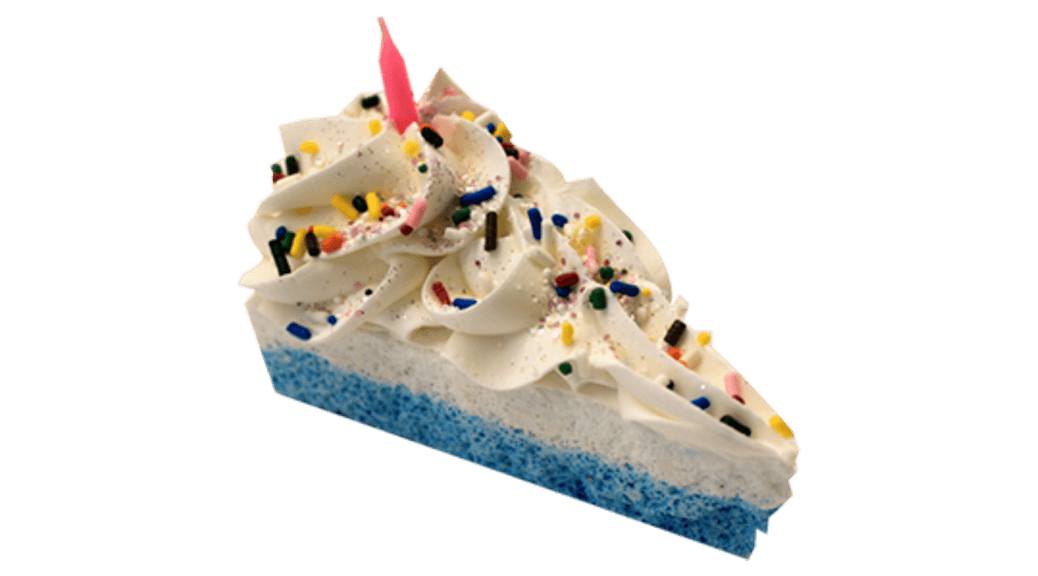Due to personal time constraints, this is a reprint from last year which has not been updated.
William Hulbert (1832)
Mike Sullivan (1866)
Lena Blackburne (1886)
Rube Bressler (1894)
Billy Sullivan (1910)
Vern Stephens (1920)
Ewell Blackwell (1922)
Jim Bunning (1931)
Greg Thayer (1949)
John Castino (1954)
Dwight Lowry (1957)
Al Leiter (1965)
Todd Sears (1975)
David Riske (1976)
John Lackey (1978)
Bud Smith (1979)
Kyle Gibson (1987)
William Hulbert was one of the founders of the National League and was its president from 1877 until his death in 1882.
Infielder Lena Blackburne discovered and marketed the mud from the driver beds near the Delaware River in New Jersey that has been rubbed on every major league baseball used since the 1950s.
Right-hander Gregory Allen Thayer played for the Twins in 1978.. Born in Cedar Rapids, Iowa, he went to high school in St. Cloud, Minnesota, attended St. Cloud State, and was drafted by the Giants in the 32nd round in 1971. He was small for a professional pitcher, standing 5' 11" and weighing 182 pounds. Thayer spent two years in the low minors for San Francisco, pitching neither well nor terribly, but was released in April of 1973. He was out of baseball that season, but the Twins signed him in September. Thayer was in AA Orlando most of the next four seasons, compiling an ERA of around 3.00. For some of that time, his roommate was Terry Ryan. He was only promoted above AA once in that span, in 1975, when he pitched 39 innings for AAA Tacoma. One suspects the main reason for that was control problems; he averaged about 5 walks per nine innings. Thayer made the Twins at the start of the 1978 season, pitching in a middle relief/mopup role. He did about as well as you would expect someone in that role to pitch, but still walked too many batters: he was 1-1 with a 3.80 ERA in 20 appearances, giving up less than a hit per inning but walking 30 in 45 innings. He was sent back to the minors in late June. Thayer was in AAA Toledo through 1979, but continued walking people. He moved on to the Toronto organization in 1980, but his professional career was over after that. He did not give up baseball, however. In 1992, he pitched for the Sartell Muskies amateur team, helping them win the Class C state championship. He makes regular appearances at an annual Minnesota Twins alumni game hosted by the St. Cloud River Bats and at last report was a coach for the Sauk Rapids legion baseball team.
Infielder John Anthony Castino played for the Twins from 1979-1984. He was born in Evanston, Illinois and went to high school in Winnetka, Illinois. He then attended Rollins College in Winter Park, Florida. He was drafted by the Twins in the third round in 1976. In 1977, he hit .326 with 17 home runs at Class A Visalia. He continued to hit well the next year at AA Orlando, and was installed as the regular third baseman for the Twins in 1979. Castino hit .285 that year and shared the Rookie of the Year award with Alfredo Griffin. He hit .302 in 1980, but then began to decline, due partly to back problems. A move to second base in 1982 probably did not help matters, either. He bounced back with a solid 1983 campaign, hitting .277 with 11 homers, but after that his injuries became too much for him. He played eight games in 1984, and then his career was over. In just over five seasons, John Castino hit .277/.329/.398 for the Twins. After leaving baseball, he got an MBA from the University of St. Thomas and was the senior vice president of Wealth Enhancement Group, a Minneapolis-based financial planning and advisory services firm, until his retirement in 2013. Upon retiring, he moved to New Smyrna Beach, Florida.
Catcher Dwight Lowry had seven at-bats for the Twins in 1988. He was born in Lumberton, North Carolina and attended the University of North Carolina. He was drafted by the Tigers in the 11th round in 1980. He did not hit well in the minors; his best year was 1982, when he hit .277 in his second year at Class A Lakeland. He reached AA in 1983 and AAA in 1984, He was in the majors part of that year, serving as Lance Parrish's backup in April, May, and September for Detroit's World Championship team. Lowry was back in the minors in 1985, but spent most of 1986 with the Tigers, again as the backup catcher. He played sparingly in both AAA and the majors in 1987, but then was released by the Tigers. He actually had played about as well as you could expect a backup catcher to play: a .282 average with 5 homers in 220 at-bats. The Twins signed Lowry in October of 1987. He was with them coming out of spring training in 1988, but after going 0-for-7 was sent to the minors in late April, never to return. Out of baseball in 1989, Lowry came back in 1990, hitting .310 in 187 at-bats for the Expos' AAA team in Louisville. When that did him no good, however, he turned to coaching and managing in the Tigers' organization. He was the Tigers' Player Development Man of the Year in 1996. Sadly, while managing the Jamestown Jammers in 1997, Dwight Lowry died of a heart attack on July 10 at the age of 39. The Tigers named their player development award the Dwight Lowry award. Dwight Lowry was inducted into the South Atlantic League Hall of Fame in 1998.
First baseman Todd Andrew Sears played for the Twins in 2002-2003. He was born in Des Moines, went to high school in Ankeny, Iowa, and then attended the University of Nebraska. He was drafted by the Rockies in the third round in 1977. He spent three years in Class A, putting up solid and steadily increasing numbers. He started 2000 in AA, and was traded in July to Minnesota for Butch Huskey and Todd Walker. He was promoted to AAA Edmonton in 2001, and hit over .300 there for two consecutive years. He also hit 33 home runs in that span, and got a September call-up to the Twins in 2002. He had two stints with the Twins in 2003, totaling about a month and a half, and was with Rochester the rest of the year. In September, Sears was traded to the Padres for Alex Garcia. He spent the rest of the season in San Diego, but would never play in the majors again. He was with the Padres' organization in 2004, went to the Marlins for 2005, started 2006 with the Mariners, was released in June, and went back to the Marlins for the rest of 2006 and all of 2007 before finally calling it a career. As a Twin, Todd Sears hit .260/.326/.390, with two home runs and 11 runs batted in. Sears went back to college after his pro career ended, receiving a degree in business administration from the University of Nebraska in August of 2009. At last report, he was the owner and operations manager of Complete Game Baseball, a baseball instructional school in the Kansas City area.
Left-hander Robert Allan “Bud” Smith did not play for the Twins, but made three appearances at AAA Rochester in 2005. He was born in Torrance, California, went to high school in Bellflower, California, attended Los Angeles Harbor Community College, and was drafted by St. Louis in the fourth round in 1998. He pitched very well in the minors and advanced rapidly, reaching the majors in June of 2001 at age 21. He made sixteen appearances for the Cardinals, fourteen of them starts, and went 6-3, 3.83 with a 1.22 WHIP and a no-hitter. He finished fourth in the Rookie of the Year voting, and big things were expected. They didn’t happen. He developed shoulder problems. Smith underwent various surgeries over the years to repair the damage, but nothing really worked. He started 2002 in the Cardinals’ rotation and went 1-5, 6.94. He was sent to the minors and traded to Philadelphia in late July. He never got back to the big leagues. The shoulder continued to bother him; he stayed in the Phillies’ organization through 2004, but appeared in only 21 games. The Phillies let him go, and Smith signed with Minnesota as a free agent for 2005. He made three relief appearances in Rochester, going 1-0, 4.76 in 5.2 innings. He played for Long Beach in the Golden Baseball League in 2006-2007, then his playing career ended. At last report, Bud Smith was a scout in southern California for the Toronto Blue Jays.
Right-hander Kyle Benjamin Gibson has pitched for the Twins since 2013. Born and raised in Greenfield, Indiana, he attended the University of Missouri and was drafted in the first round by Minnesota in 2009. He pitched well at three different spots in 2010, struggled when promoted to AAA in 2011, then underwent Tommy John surgery. He made thirteen appearances in 2012, most of them rehab appearances in the low minors. He pitched very well for Rochester in 2013, going 7-5, 2.92, 1.16 WHIP. He was promoted to Minnesota for about two months, and that did not go so well. He began 2014 in the Twins' rotation, however, and was a solid contributor there in 2014-2015. In 2016, however, he was part of the total system failure: he went 6-11, 5.07, 1.56 WHIP in a season in which he missed a month due to injury. 2017 started out as more of the same, but after stinking it up for the first four months of the season he pitched quite well in August and September, going 6-2, 3.55. At that point, we asked, "Has he finally turned a corner, or were those two months an illusion?" It looked like he finally turned a corner--in 2018 he went 10-13, 3.62, 1.30 WHIP. In 2019, however, he took a step backwards, posting an ERA of 4.84 and a WHIP of 1.44. At the time we thought injuries and illness may have been a factor, but he was worse in 2020. He was also with Texas in 2020, as the Twins allowed him to become a free agent. It looked like it might be about the end of the line for him, but he bounced back in 2021 to have an outstanding two-thirds of a season for the Rangers, posting an ERA of 2.87. He then was traded to Philadelphia at the July deadline and went back to being who he'd been in 2020, posting an ERA of 5.09. He turns thirty-four today. We assume he'll start the season with the Phillies, but if wants to stay there he'll need to pitch more like he did with the Rangers.

